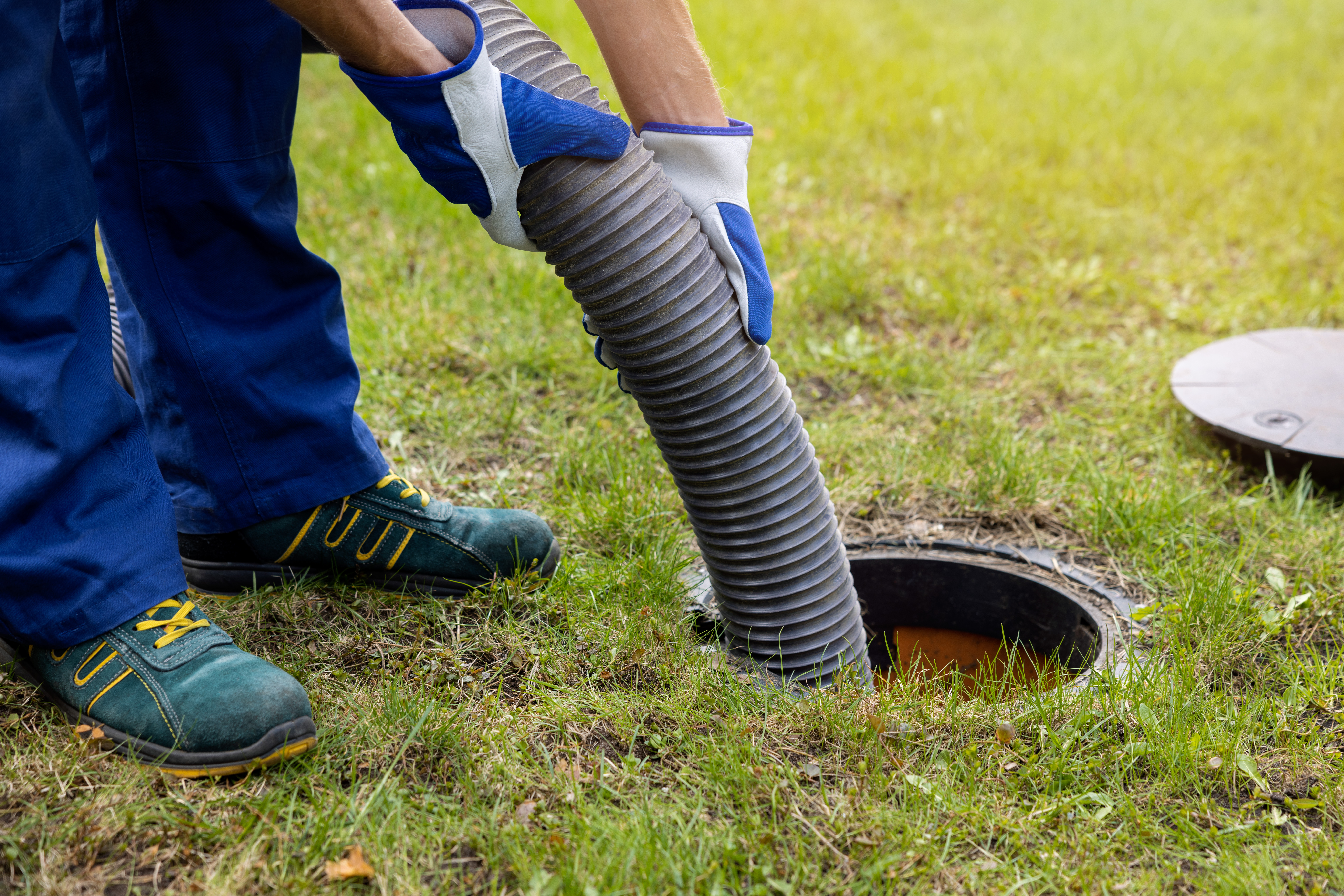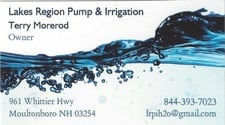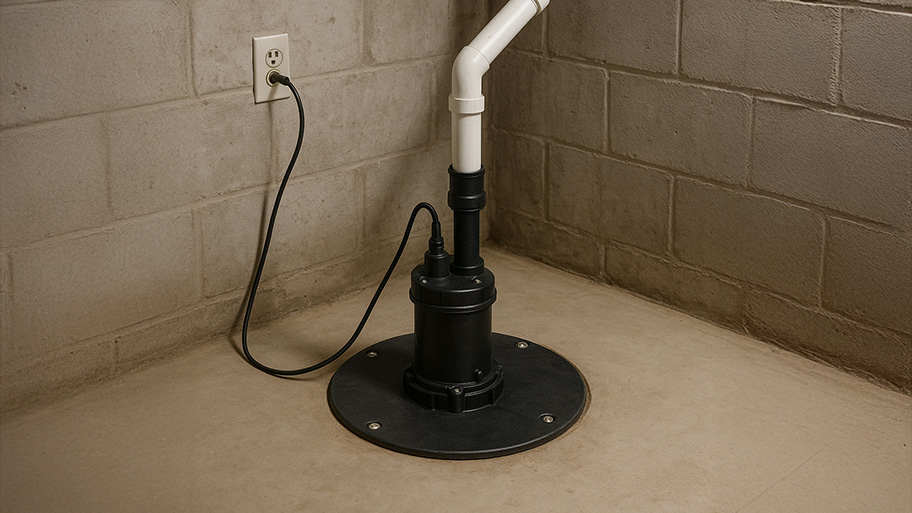
Get matched with top well and pump technicians in Plymouth, NH
Enter your ZIP and get matched with up to 5 pros
Need a pro for your well and pump service project in Plymouth, NH?
TRUSTED BY PLYMOUTH, NH HOMEOWNERS
4.8
Average homeowner rating113
Verified well and pump services reviews
Find Well and pump technicians in Plymouth

Lakes Region Pump & Irrigation
Lakes Region Pump & Irrigation
Lakes Region Pump and Irrigation is your premier choice for all of your pump and irrigation needs and 25 years of water treatment residential; and commercial. We pride ourselves on providing exceptional craftsmanship and customer service. Call us today!
"He was very prompt to show but I wasn't happy about how much he charged me. "
Dennis C on June 2025
Lakes Region Pump and Irrigation is your premier choice for all of your pump and irrigation needs and 25 years of water treatment residential; and commercial. We pride ourselves on providing exceptional craftsmanship and customer service. Call us today!
"He was very prompt to show but I wasn't happy about how much he charged me. "
Dennis C on June 2025

Meredith Plumbing & Heating
Meredith Plumbing & Heating
Meredith Plumbing and Heating LLC is ready to handle all of your water delivery and removal system needs. We do any necessary plumbing repair and installation to restore efficiency to your system. To prevent backups, we perform detailed sewer services using high-tech equipment. We will take on any job involving plumbing and heating. We are experienced experts in sewer drain cleaning, water pumps and sewer pumps, water filtration systems, gas piping and all gas related services and issues, water tanks, on demand hot water heaters repair or replacements. 24 HOUR EMERGENCY SERVICE AVAILABLE!! CALL (603) 455-9269
"Fred was wonderful. He converted my new stove/range from Natural gas to propane. In the process, he fixed the gas lines coming from outside the home to the range. Even though it was a small project, he was out very quickly after my call. I expect to be hiring Meredith Plumbing and Heating again for a different project."
Caroline S on July 2025
Meredith Plumbing and Heating LLC is ready to handle all of your water delivery and removal system needs. We do any necessary plumbing repair and installation to restore efficiency to your system. To prevent backups, we perform detailed sewer services using high-tech equipment. We will take on any job involving plumbing and heating. We are experienced experts in sewer drain cleaning, water pumps and sewer pumps, water filtration systems, gas piping and all gas related services and issues, water tanks, on demand hot water heaters repair or replacements. 24 HOUR EMERGENCY SERVICE AVAILABLE!! CALL (603) 455-9269
"Fred was wonderful. He converted my new stove/range from Natural gas to propane. In the process, he fixed the gas lines coming from outside the home to the range. Even though it was a small project, he was out very quickly after my call. I expect to be hiring Meredith Plumbing and Heating again for a different project."
Caroline S on July 2025

Well Hose
Well Hose
WellHose DIY Drop Pipe - You can install your own submersible pump.Free installation classes available. www.WellHose.com
WellHose DIY Drop Pipe - You can install your own submersible pump.Free installation classes available. www.WellHose.com
Dawson's Excavation and Utility Services, LLC
Dawson's Excavation and Utility Services, LLC
Dawson's Excavation and Utility Services is a diverse and multi-dimensional company. Fully insured and licensed. We pride ourselves with professionalism, dedication and quality. Dawson's provides many services to fulfill the requirements of any project. Whether you are a private resident or a commercial property owner.
"Worst experience and lack of professionalism ever. Never seen such poor quality of work. Two month job took almost 7 months. Never came back to my house to fill hole they left under foundation where rodents gained access or return the gravel back there. Used the wrong materials on grading the roads so they're already sinking. Ruined my driveway. Scraped away the stone dust and crushed stone to gain access to side yard. Every time it rains, cheap road sand pours into my driveway, further eroding it, and draining several inches of this sand into my flower beds. Apparently, the $300 it would cost Jake to come back and return the driveway to its original state, is just not important enough to him. I hope it ends up costing him his reputation because I plan on leaving reviews everywhere including social media. Maybe you'll learn something from this experience."
Tracy C on May 2020
Dawson's Excavation and Utility Services is a diverse and multi-dimensional company. Fully insured and licensed. We pride ourselves with professionalism, dedication and quality. Dawson's provides many services to fulfill the requirements of any project. Whether you are a private resident or a commercial property owner.
"Worst experience and lack of professionalism ever. Never seen such poor quality of work. Two month job took almost 7 months. Never came back to my house to fill hole they left under foundation where rodents gained access or return the gravel back there. Used the wrong materials on grading the roads so they're already sinking. Ruined my driveway. Scraped away the stone dust and crushed stone to gain access to side yard. Every time it rains, cheap road sand pours into my driveway, further eroding it, and draining several inches of this sand into my flower beds. Apparently, the $300 it would cost Jake to come back and return the driveway to its original state, is just not important enough to him. I hope it ends up costing him his reputation because I plan on leaving reviews everywhere including social media. Maybe you'll learn something from this experience."
Tracy C on May 2020
Pro Flo Water Treatment LLC
Pro Flo Water Treatment LLC
All Services Payed for by Cash or Check
All Services Payed for by Cash or Check

Linden Electric LLC
Linden Electric LLC
One employee (owner), sub-contractors used as needed depending on size of job. Billing sent to consumers mailing address after work is completed. Payment plans are possible depending on situation, as well as size of job may need possible down payment. Always willing to work with customer's needs.
One employee (owner), sub-contractors used as needed depending on size of job. Billing sent to consumers mailing address after work is completed. Payment plans are possible depending on situation, as well as size of job may need possible down payment. Always willing to work with customer's needs.
Lost Lake Mechanical Contractors, LLC
Lost Lake Mechanical Contractors, LLC
Consumer-friendly rates. Free estimates. All major credit cards accepted.
Consumer-friendly rates. Free estimates. All major credit cards accepted.

McBride's Water Advantage, LLC
McBride's Water Advantage, LLC
We are a growing company serving the residence State of New Hampshire. Payment options include cash, checks, Mastercard, Visa and Discover. Like us on Facebook and receive a free in-home well pump and water system inspection.
We are a growing company serving the residence State of New Hampshire. Payment options include cash, checks, Mastercard, Visa and Discover. Like us on Facebook and receive a free in-home well pump and water system inspection.
Thunder Well and Pump
Thunder Well and Pump
Thunder Well & Pump, located in Concord and Merrimack NH is a full service well and pump service company. Owner, Steven Schwed has been in the well business for over 20 years, and is experienced in all aspects of service and installation, water treatment, filtration and testing. Emergency service is available and always at a fair price. Thunder Well does not charge overtime for residential clients, making your cost as affordable as possible. We accept credit cards and can make payment arrangements. Member of NHGWA - New Hampshire Ground Water Association Member of MGWA - Massachusetts Ground Water Association Member of NGWA - National Ground Water Association.
Thunder Well & Pump, located in Concord and Merrimack NH is a full service well and pump service company. Owner, Steven Schwed has been in the well business for over 20 years, and is experienced in all aspects of service and installation, water treatment, filtration and testing. Emergency service is available and always at a fair price. Thunder Well does not charge overtime for residential clients, making your cost as affordable as possible. We accept credit cards and can make payment arrangements. Member of NHGWA - New Hampshire Ground Water Association Member of MGWA - Massachusetts Ground Water Association Member of NGWA - National Ground Water Association.

Hartley Well Drilling
Hartley Well Drilling
After 45+ years and into a fourth generation of well drillers, Hartley Well Drilling provides complete water services including well drilling, well pumps, filtering & softening and geothermal heating & cooling to New Hampshire and Maine residential and commercial customers. We drill true Artesian water wells and gravel water wells, install and repair water well pumps and motors, install water well system electrical as well as water well pressure tanks and complete water filter & softener solutions. We also offer complete geothermal heating and cooling systems which often provide great energy savings and are far more environmentally friendly than wood, oil and other fossil fuel-based heating and cooling. Feel free to contact us through the form on our homepage at www.hartleywell.com or call us at 603-323-7924.
After 45+ years and into a fourth generation of well drillers, Hartley Well Drilling provides complete water services including well drilling, well pumps, filtering & softening and geothermal heating & cooling to New Hampshire and Maine residential and commercial customers. We drill true Artesian water wells and gravel water wells, install and repair water well pumps and motors, install water well system electrical as well as water well pressure tanks and complete water filter & softener solutions. We also offer complete geothermal heating and cooling systems which often provide great energy savings and are far more environmentally friendly than wood, oil and other fossil fuel-based heating and cooling. Feel free to contact us through the form on our homepage at www.hartleywell.com or call us at 603-323-7924.
The Plymouth, NH homeowners’ guide to well and pump services
From average costs to expert advice, get all the answers you need to get your job done.

If you have a well, you might need to replace the well pump to have great-tasting water. Well pump replacement costs depend on your well size and other factors.

Dry wells are handy for anyone who’s experiencing drainage problems. But dry well installation costs can vary depending on its size, location, and volume.

Many scenarios can lead to bacteria and other contaminants in your well. Learn about how much it costs to shock a well so you can enjoy clean drinking water.

Explore these simple instructions to learn how to install a submersible well pump safely on your property. It might be easier than you think.

Facing a well water pump replacement? You’ll need to get it out of the ground first. Use this guide to learn how to pull a well pump DIY-style.

Does a sump pump need a dedicated circuit? Find out the wiring and electrical requirements for installing a sump pump in your home.
- Ashland, NH Well and pump technicians
- Holderness, NH Well and pump technicians
- Rumney, NH Well and pump technicians
- Campton, NH Well and pump technicians
- Hebron, NH Well and pump technicians
- Center Harbor, NH Well and pump technicians
- Alexandria, NH Well and pump technicians
- Bristol, NH Well and pump technicians
- Sandwich, NH Well and pump technicians
- Wentworth, NH Well and pump technicians
- New Hampton, NH Well and pump technicians
- Meredith, NH Well and pump technicians
- Sanbornton, NH Well and pump technicians
- Woodstock, NH Well and pump technicians
- Tilton, NH Well and pump technicians
- Canaan, NH Well and pump technicians
- Moultonborough, NH Well and pump technicians
- Waterville Valley, NH Well and pump technicians
- Hill, NH Well and pump technicians
- Warren, NH Well and pump technicians
- Grafton, NH Well and pump technicians
- Danbury, NH Well and pump technicians
- Laconia, NH Well and pump technicians
- Lincoln, NH Well and pump technicians
- Gilford, NH Well and pump technicians
- Orford, NH Well and pump technicians
- Northfield, NH Well and pump technicians
- Franklin, NH Well and pump technicians
- Tamworth, NH Well and pump technicians
- Belmont, NH Well and pump technicians
- Electrical in Plymouth
- Kitchen And Bath Remodeling in Plymouth
- Roofing in Plymouth
- Tree Service in Plymouth
- Flooring in Plymouth
- Excavating in Plymouth
- Cleaning in Plymouth
- Driveways in Plymouth
- Contractor in Plymouth
- Pressure Washing in Plymouth
- Siding in Plymouth
- Foundation Repair in Plymouth
- Mailbox Repair in Plymouth
- Leaf Removal in Plymouth
- Handyman Service in Plymouth
- Home Builders in Plymouth
- Phone Repair in Plymouth
- Painting in Plymouth
- Epoxy Flooring in Plymouth
- Windows in Plymouth
- Pest Control in Plymouth
- Gutter Cleaning in Plymouth
- Stone And Gravel in Plymouth
- Fencing in Plymouth
- Swimming Pools in Plymouth
- Dumpster Rental in Plymouth
- Small Appliance Repair in Plymouth
- Drywall in Plymouth
- Garbage Collection in Plymouth
- Water And Smoke Damage in Plymouth
- 🌱 "Mow a small front yard"
- 🛠 "Fix a leaking pipe under the sink"
- 🏠 "Repair shingles on an asphalt roof"